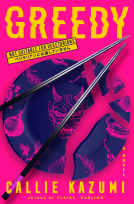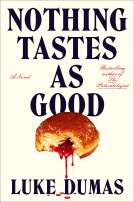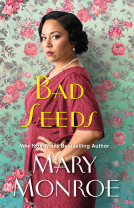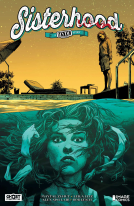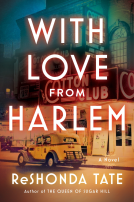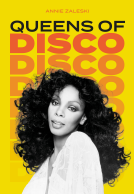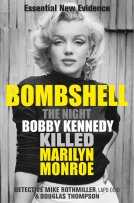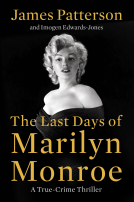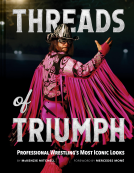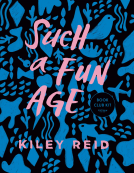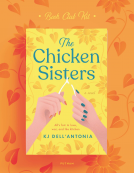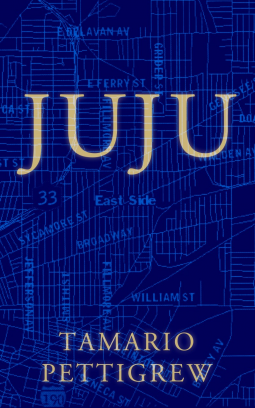
JUJU
Life on the East Side
by Tamario Pettigrew
This title was previously available on NetGalley and is now archived.
Send NetGalley books directly to your Kindle or Kindle app
1
To read on a Kindle or Kindle app, please add kindle@netgalley.com as an approved email address to receive files in your Amazon account. Click here for step-by-step instructions.
2
Also find your Kindle email address within your Amazon account, and enter it here.
Pub Date Mar 20 2019 | Archive Date Sep 19 2019
Talking about this book? Use #Juju #NetGalley. More hashtag tips!
Description
Thirteen-year-old JuJu reluctantly moves into a shack with his mother and siblings. The move is a downgrade from the more welcoming working-class neighborhood he grew accustomed to before his mother lost her night job in the recession. Set on the East Side of Buffalo, NY, JuJu provides a window into the poverty stricken, segregated, urban childhood.
Years of reading classic novels with his often-hospitalized younger sister gives JuJu a dream of writing his own stories about what it’s actually like to live in the ghetto. His escape into novels can’t prevent his reality on the primarily black East Side, which is filled with murder, drugs, incarceration, and blatant and continual police brutality. On the East Side, JuJu struggle to protect himself, his mother, and his sisters as they navigate his openly hostile, racially-divided city.
Advance Praise
STARRED REVIEW
This is a must-read for anyone who loved Toni Morrison’s The Bluest Eye… It should be on summer reading lists and in high school libraries everywhere. BlueInk Review
In his debut novel, Pettigrew speaks with an authentic, compelling voice... Pettigrew persuasively makes his case about the array of forces trapping blacks in poverty... Vivid and poignant... Kirkus Reviews
Blue Ink Review
STARRED REVIEW
JUJU: Life on the East Side
Tamario Pettigrew
Tamario Pettigrew, 246 pages, (paperback) $9.99, 9781090947789
(Reviewed: June 2019)
Tamario Pettigrew’s young adult novel, JUJU: Life on the East Side, tells a beautiful, yet at times horrific, coming of age story, set in the summer of 1986, when crack came to the East Side slums of Buffalo, NY.
Juju, or Julian Junior, is 13-years-old when his mother loses one of her three jobs and thus has to move him, his three younger sisters, and one brother just out of prison back to the ghetto, after living, for a time, on a safe, working class street. (He has two other older brothers, one in prison, and the other in the military).
When they first move into the neighborhood, Juju worries about his fate: “I knew there was things I was gon’ have to do if I wanted to fit in…I was worried about what kind of boy I’d have to be to survive.”
Juju does survive and makes friends, but, as feared, faces problems: An initial candy shoplifting incident grows into something worse, and Juju struggles to be true to himself while peers descend further into crime. An aspiring writer, he details the problems before and after crack came to town.
Juju’s observations are poetic, and his poignant yet matter-of-fact narrative sucks readers into his world: “Being a black boy is strange,” he writes. “…I just want to play arcade games and go hang out with my friends. Outside, I’m a six-foot-tall, 140-pound black man. People treat me different. They scared of me.” Juju considers it just another day in his life, even when discovering his friend’s prostitute mother, naked on the lawn or enduring violence from police and neighborhood gangsters. This ability to present such a challenging world in seemingly routine observations is one of the book’s chief strengths. That it’s beautifully written, with lyrical conversations and equally lovely yet disturbing descriptions, adds to the novel’s urgency.
This is a must-read for anyone who loved Toni Morrison’s The Bluest Eye. Given the graphic nature of some of Juju’s wry descriptions (of violence and occasionally sexual matters), it might not be appropriate for younger readers but should be on summer reading lists and in high school libraries everywhere.
Also available as an ebook.
Kirkus Reviews
TITLE INFORMATION
JUJU
Life on the East Side
Self
BOOK REVIEW
In this novel, a black eighth-grader is pulled into the hopelessness of Buffalo’s ghetto. Julian Stewart Jr., always called JuJu, is 13 years old and 6 feet tall when his large family moves to “the worst part of the ghetto,” Buffalo’s East Side, in the mid-1980s. In their old neighborhood, life was tough, but people looked out for each other. The East Side is different, demanding constant toughness. JuJu is thoughtful, wants to be a writer, and worries about who he’ll have to become in the ghetto. Whites use police and their constant harassment to protect themselves “from us bad blacks”; other blacks discourage advancement: “Most people in the ghetto tell you, ‘You ain’t gon’ be shit, and you dumb, and black, and no good.’ ” JuJu writes his thoughts in a notebook, reads, and nurtures a desire to escape. But to make friends he has to go along with their petty crimes, which puts him in danger from the police. At home, JuJu tries to protect his sisters and Mama, who works hard but sometimes leaves the kids for days—a $20 bill taped to the TV screen—when she has a new boyfriend. Then crack cocaine hits the East Side, making what was bad exponentially worse. After a family tragedy, JuJu is newly determined to define his life for himself. In his debut novel, Pettigrew speaks with an authentic, compelling voice, as when describing the East Side: “If you ever been here, you’d know it’s filthy, and overgrown, and dilapidated, and uncared for….If you ever been here, you’d know it smells of a heavy dankness, coming off all them manufacturing plants, in the summer. You’d know the old broken-down houses smell like mold, stale air, lead paint, and plaster cover-ups.” Pettigrew persuasively makes his case about the array of forces trapping blacks in poverty and crime, with many heartbreaking examples. These points do, however, become repetitive, whereas JuJu’s transformation occurs in a few all-too-brief paragraphs.
Vivid and poignant, with an ending that could use more illumination.
Foreword Clarion Reviews
Clarion Rating: 5 out of 5
JuJu is a harrowing and hopeful novel, and Pettigrew’s writing is diamond sharp.
A neighborhood in Buffalo endures the 1980s crack epidemic in Tamario Pettigrew’s JuJu, a compelling young adult novel with adult interest.
Teenage JuJu has three older brothers and three younger sisters. When his mother loses one of her three jobs, the family’s choices are limited: they can either return to the neighborhood they left, or they can go on welfare. They move into a dilapidated house in the worst part of Buffalo’s East Side.
JuJu narrates, capturing changes within his family, the neighborhood, and himself. His voice is mesmerizing, with its own cadence and slang. His narration features keen observance and gentle formalities. He expresses dread of what lies ahead and sadness at leaving better schools behind him.
Understanding that survival depends on numbers, JuJu befriends Ashley, an entrepreneurial sociopath who heads a small crew. Ashley’s sister Naomi is lovely, responsible, and unattainable—the embodiment of all that JuJu longs for.
Other characters are established through quick, sharp dialogue and details that illustrate the fractures of their neighborhood lives. Boo, JuJu’s favorite sister, never quite gets the medical care that she needs, and she spends days in bed reading. JuJu’s mother tries to avoid welfare but is defeated by her lack of income and a scheming boyfriend.
JuJu, Ashley, and their crew fall into a pattern of roaming, shoplifting, and playing video games at the laundromat. Their rambles result in a broad panorama of Buffalo life, where houses are missing their shingles and lawns are weed patches. There’s an edge-of-the-world feeling to the text that makes it riveting reading, even when JuJu and his friends aren’t doing much. Balanced and even, the focus trades between JuJu’s time outside and his time at home with his family, where he is often required to guard the house and his young sisters.
JuJu finds escape in the books that Boo lends him and begins writing a journal. The first trickle of crack into the neighborhood happens almost without being noticed: it’s something the adults do, though soon it’s also the center of a business run by their children. The neighborhood changes, and JuJu faces pressure to jump in for a share of the rewards.
As bullets become a regular sound, and young men disappear into graves or prison, the story’s pressure builds to an almost unbearable peak. JuJu knows where that road leads, but struggles: the money would be a ticket out. An unexpected and bittersweet resolution resolves the character’s fates.
JuJu is a harrowing and hopeful novel, and Pettigrew’s writing is diamond sharp.
Available Editions
| ISBN | 9781090947789 |
| PRICE | $4.99 (USD) |
Links
Average rating from 5 members
Featured Reviews
 Reviewer 554257
Reviewer 554257
As financial circumstances change and the family has to move to the ghetto in Buffalo New York East teenager Juju is confronted with a whole new way of life. Gradually Juju drifts into joining a gang where stealing, scamming, and defending your patch becomes the norm.
Crack later appeared creating a war zone with easy money that leads to gangs arming up, drive-by shootings and corrupt racist local police.
There is also a wonderful story of love, friendship, hope, adversity and strength in a young man's journey to be enjoyed. This story is fiction only I feel the last pages are very personal. Thanks Tomario.
A honest review BooksGoSocial and NetGalley
This book is a wonderful narrative of life changing situations that determine where we may be at some time in our life. A strong mother doing the best she can, but ends up having to move her family to the “ghetto “. What follows is a story about family, friendships, relationships and that thing called life. Wonderful read that is well written. I highly recommend this book to all. Thanks to Netgalley, the author and the publisher for the arc of this book in return for my honest review. Receiving the book in this manner had no bearing on this review.
 Kim M, Reviewer
Kim M, Reviewer
Thank you to Netgalley for this advanced reader's copy. Wonderful story of love, friendship, hope, adversity and strength. I definitely recommend this book. It won't disappoint.
 Evelina A, Reviewer
Evelina A, Reviewer
This book was written in a very nice tone, it's a good story, easily readable. But despite the comfortable tone, it's about very serious racial problems in the US, a couple of decades ago, and considering the events of 2020, it's quite eye-opening about how not that many things have changed, unfortunately.
The story is largely about life in the ghetto - cops picking on children, the way you either blend into the subculture or it erases you, and you can't shed the effects even after you leave it - and leaving is about the only real way to survive, but it's not always accessible, in fact, it's accessible only to a lucky few, because life in the ghetto can be a trap. Life is hard in this book, and of course it's sad. I'm not sure when I downloaded this book, but I think it was written before the BLM movement really took off worldwide due to the tragic events of 2020. After it, it's even more tragic to read about these things and know that it just doesn't change - or at least, it doesn't change as fast as you'd want things to change.
Books like JuJu are important, because these things need to be talked about more. Literature often concentrates on struggle, but many high brow lit only concentrates on the struggle of a middle class or poor white man, specifically. Books like JuJu are similar in their goal to capture the struggle of a man trying to get out of a trap of a hard life, being hardened by their experiences - the difference is that it's about a Black man, and it's very relevant to have this literature grow more widely read.
I thank the publisher for giving me a free copy of the ebook in exchange to my honest review. This has not affected my opinion.
JuJu is such a great character, and his story really broke my heart. Set in a time and place where racial tensions are still very much a part of everyday life, JuJu is forced to learn how to navigate while still trying to pursue his dreams. Pettigrew really brings the whole story to life, with unforgettable characters and a story that evokes emotions from the reader. It covers some very heavy topics, and some readers may find it eye-opening as it takes place in the modern day, and not the mid-20th century. Highly recommend for all literary fiction lovers.
Readers who liked this book also liked:
ReShonda Tate
General Fiction (Adult), Historical Fiction, Multicultural Interest
James Patterson; Imogen Edwards-Jones
Historical Fiction, Mystery & Thrillers, True Crime
